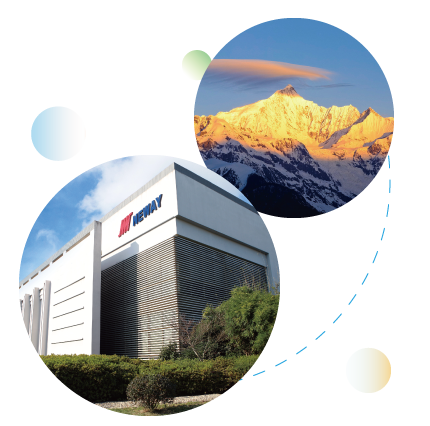Simplicity:
Pursue conciseness and efficiency in work and communication,
eliminating unnecessary complexity. Avoid bureaucracy and red tape to
ensure the directness and transparency of information transmission.
Encourage employees to solve problems in the most effective way and
reduce resource waste.
Complexity
is the essential norm of things, and simplicity is never simple at its
core. We need to rely on rigid institutional processes, underlying
logic, and rule design to simplify complexity. The work behind this
involves in-depth and complex research and analysis in management,
summarizing and forming a set of clear, explicit, and easy-to-execute
plans or standards. This paves the way for every employee to achieve
"simplicity," where they can execute tasks more simply and efficiently.
Pragmatism:
Emphasize practical actions and result-orientation, starting from
customers, products, orders, growth, and profits in all aspects. Avoid
empty talk and formalism. The company encourages employees to focus on
tasks that can bring real value to the company and take responsibility
for results. Pragmatism also means facing reality, not avoiding
problems, having the courage to admit mistakes, and correcting them in a
timely manner.
Pioneering:
Proactively seek new market opportunities, business areas, or partners.
It reflects that Neway people are willing to step out of their comfort
zones, explore the unknown, dare to challenge the status quo, and
continuously expand business boundaries and possibilities.
Innovation:
Encompasses multiple dimensions including (but not limited to) R&D,
production, management, marketing, work efficiency, and methods.
Meanwhile, improvement is also innovation, and everyone can innovate
everywhere. The philosophy of "I am the root of everything" encourages
all employees to think from their own perspectives and enhance Neway's
core competitiveness through new technologies, new processes, etc.
Respect for Systems:
Respecting systems means that employees should abide by all rules and
regulations of Neway, including (but not limited to) work discipline,
financial regulations, safety standards, procedure documents, operation
procedures, etc. By following systems, enterprises can ensure the
orderly progress of all work and maintain the stability and sustainable
development of the enterprise. A good system is the foundation for
ensuring the normal operation of the enterprise and the key to
maintaining a fair and just working environment.
Respect for Processes:
Processes are the specific steps and methods to achieve goals,
featuring operability, ease of execution, clear rights and
responsibilities, and risk resistance. Employees should establish and
continuously improve the work processes for each position. Following
established processes can improve work efficiency, reduce the
probability of errors, and also facilitate knowledge accumulation and
inheritance. Respecting processes does not mean sticking to conventions;
when necessary, continuous improvement should be made according to
actual situations, but the premise is that any changes should go through
full evaluation and authorization.
